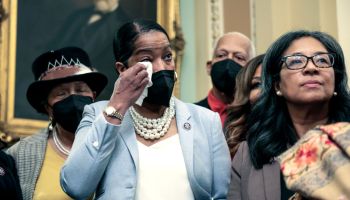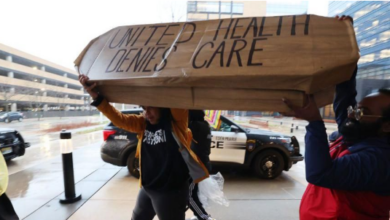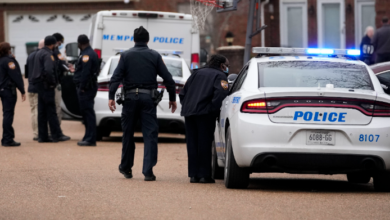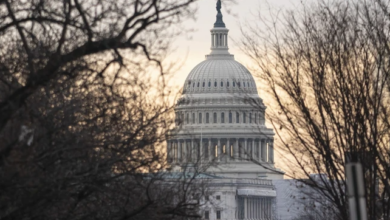Upcoming Court Elections Put Justice On the Ballot


Source: Kent Nishimura / Getty
While many have celebrated the historic appointments of Black and other people of color to the federal bench, state and local courts still have a way to go. In several states, judges are directly elected by voters.
According to Ballotpedia, more than eighty state supreme court seats are up for grabs this election cycle, along with intermediate appellate court positions, in states like Michigan and North have an opportunity As the Alliance for Justice notes, state courts hear over 100 million cases each year.
Approaches for selecting judges depend on the state
Different states use different methods for selecting judges. Some judges are appointed, with voters later voting on whether the judges should be retained.
These retention elections are a simple yes or no on the judges up for review. This is the case in states like Iowa. The governor appointments judges and state Supreme Court justices, highlighting the importance of the upcoming race between Gov. Kim Reynolds and Deidre DeJear.
Read: It’s Not Just Congress. Downballot Elections Need Your Attention This Cycle.
Also, many judicial races are nonpartisan, with judges simply running without a party affiliation publicly displayed. This can pose a challenge for voters to figure out who to choose.
In some races, there are clear distinctions between the candidates that help people cast their votes. But judicial elections are among the least researched races on the ballot, given the lack of information. Sometimes a local or state bar association, or other legal organization, may have a guide to judicial elections.
For example, the Ohio State Bar Association partnered on a judicial votes count site. According to Axios Ohio, this is the first-year candidates will appear on the ballot with party affiliations. Criminal justice advocacy or voter engagement organizations may also have a breakdown of positions on the ballot, including judges.
During the confirmation process for U.S. Supreme Court Justice Ketanji Brown Jackson, Senators kept questioning her judicial philosophy. Similarly, state Supreme Court justices and lower court judges have their own understandings and interpretations of the law.
State Supreme Court elections
State Supreme Courts play an important role in interpreting the legality of state laws and serve as the court of last resort. Note not all states call their highest court the Supreme Court.
While many states have an intermediate appeals court, eight states and the District of Columbia do not have one. This can limit the ability of people to pursue appeals for issues at the lower court level.
Data review by Stateline found that 95 percent of legal cases in the United States are heard at the state level. And yet, Black and other people of color make up less than 20 percent of State Supreme Court justices, far less than their share of the population.
Some races have seen increasing importance after the U.S. Supreme decimated the right to abortion in Dobbs v. Jackson Women’s Health Organization. State Supreme Court justices could decide on challenges to state laws prohibiting or restricting abortion.
Read: 2022 Midterm Elections: Filibuster, Senate Control And The Importance Of Black Voters
State Supreme Courts also address issues ranging from election outcomes to correcting prior injustices. Recently, the Louisiana State Supreme Court determined that it would not order new trials in cases that involved Jim Crow-era split jury decisions.
Lower court elections
While sources like Ballotpedia can be a good starting place for learning about judicial races, they only cover local races in the top 100 cities. Local news outlets and organizations like local bar associations or even the local chapter of the League of Women Voters may have more information about judicial races.
Judicial offices also have different names depending on the community. One example is a justice of the peace, who do a lot more than marry people.
SCOTUS reform
Supreme Court reform lingers in the background of the midterm elections. SCOTUS could face some reforms depending on who controls Congress in the new term. Rep. Hank Johnson and other members of the House of Representatives have already introduced legislation to expand the number of justices on the Court.
There are also proposals for implementing a code of ethics for SCOTUS, an issue top of mind for many after news broke that Justice Clarence Thomas temporarily blocked Sen. Lindsey Graham’s testimony in a Georgia election case. Democrats have previously called for Thomas to recuse himself from 2020 election cases, given evidence about his wife’s potential role in trying to overturn election outcomes.
Take a moment to look at a sample ballot for the upcoming elections in your state. And then make sure you check out our Election Resource Center for more information.
Written by NewsOne’s editorial team.
PAID FOR BY BLACKPAC, BLACKPAC.COM, AND BLACK PROGRESSIVE ACTION COALITION, BLACKPROGRESSIVEACTION.ORG. NOT AUTHORIZED BY ANY CANDIDATE OR CANDIDATE’S COMMITTEE.
SEE ALSO:
These 5 States Will Have Slavery On The Ballot This November
Attorney General Candidate Andrea Campbell Moves Closer To Making Black History In Massachusetts
Source link






